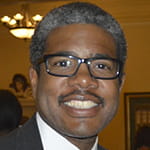Alcatel-Lucent Enterprise helps HBCUs transform their campus with digital technology that connects people, machines, things and processes.

I’ve just had the chance to read the landmark study by the United Negro College Fund (UNCF) into the economic impact that HBCUs have on society. It’s called “HBCUs Make America Strong: The Positive Economic Impact of Historically Black Colleges and Universities”.
It’s a title redolent with meaning at the moment and the report makes inspiring reading for a lot of reasons.
The study reminds us that more than a million college degrees have been awarded by HBCUs over the course of more than a century. That’s a million young people who have gained the skills, knowledge and qualifications to contribute to their communities and the nation. It’s little wonder that generations of African-American leaders have sprung from these seats of learning.
There are currently almost 300,000 students enrolled at more than 100 accredited HBCUs, with more than 80 percent of students being African American. More than 90% of all undergraduate students at HBCUs received some type of financial aid. The personal and financial implications for these students are immense: Studies show that graduates from HBCUs can expect to earn 57 percent more in their lifetime than they would without a degree. An HBCU graduate working full-time throughout his or her working life can expect to earn more than $1 million in additional income due to a college degree.
More than that, studies show the wider financial effect of HBCUs — with the total national economic impact of these colleges estimated at a stunning $16.5 billion annually. That means the combined HBCUs are equivalent to a top 50 Fortune 500 company.
Here at Alcatel-Lucent Enterprise, we are committed to developing technology solutions that work for our customers — connecting people, machines, things and processes — while creating a more sustainable future for all. We can multiply the effect HBCUs play in society by partnering closely with a number of colleges to transform their digital offerings. Together we help to transform them for the next generation of students, who demand smart, interactive and integrated campuses.
In the EDUCAUSE Center for Analysis and Research Students and Technology Report 2023, a majority of students agreed they should be able to participate in online learning (82%), reported satisfaction with a mix of on-site and online learning (70%), and said that instructors should have online office hours (59%). Additionally, a majority of off-campus students said they “mostly” or “only” participate in online learning (53%).
HBCUs know the future is digital. So, just as they have given Black students, in the past, the skills they need to thrive in competitive working environments, they also recognize the need to give students the tools, knowledge and flexibility to make the most of the opportunities of the digital age.
These students are going to have to compete not just on a regional or national stage. They are going to have to compete on a global stage — and their campuses need to prepare them for that environment by providing technology that empowers them.
That means Wi-Fi and broadband networks that are always on and always accessible. It means secure, safe and collaborative learning environments. And most importantly it means simple, sophisticated, secure and high-performance platforms ready to deliver innovative, agile educational experiences — the same kind of networks, environments and platforms that their future employers offer.
The commitment many HBCUs have made to modernize their digital learning environments requires an investment in infrastructure. At ALE, we are not just creating effective digital solutions — we are offering innovative funding solutions, too.
We have worked with Morgan State University, and leading finance company Grant Capital Management, to assemble an innovative financing package enabling the university to undertake much-needed digital transformation. The project delivered a new, state-of-the-art network for the same cost of their previous, outdated vendor network’s support renewal.
The relationships we have with HBCUs also reflect the findings of the study, which demonstrates that HBCUs benefit not just students and the wider communities they will eventually live and work in, but cities, campuses and the wider regions that serve them.
The study points out that every dollar spent by an HBCU and its students generates $1.44 in economic impact in the local and regional economy. This spending creates jobs and increases the lifetime earnings of HBCU graduates. That’s really important, because many HBCUs are situated in areas where economic activity is stagnant. And that makes each college’s economic contribution to its community all the more essential.
Another study shows that Black students are more likely to graduate with a STEM (science, technology, engineering and math) degree if they go to an HBCU. About 70 percent of African-American doctors in the U.S. have degrees from HBCUs. In 2021-2022, HBCUs comprised three percent of all four-year institutions but enrolled 10 percent of all African-American college students pursuing a bachelor’s degree nationwide. Of those students, 25 percent earned bachelor’s degrees in the crucially important STEM fields.
And that brings us back to the economic and social impact of HBCUs highlighted in the original report. The study reminds us that the ROI HBCUs offer to the African-American community, and society as a whole, makes the investment in digital transformation we help to enable not just worthwhile, but vital. It truly is a case that HBCUs and their graduates help make their campuses, their communities, their region and the nation stronger.
Learn more how HBCU’s are investing in lives by investing in learning.
Latest Blogs

Empowering businesses through choice: Why your cloud operat…
A flexible cloud operating model gives businesses the freedom to choose, communicate better, serve smarter, defend stronger, and grow bigger.

The SaaS Advantage for Hotels and Hospitality Communication…
Modern hospitality communications platforms deliver flexibility, cost optimization and exceptional guest experiences.

Your Communications System: A Brake or an Accelerator?
A modernized platform empowers enterprises to optimize operations and drive continuous performance.

Smart Manufacturing Solutions: The Future of Connected Fact…
Smart manufacturing solutions enable connected factories through reliable, intelligent network connectivity that powers automation and efficiency.





